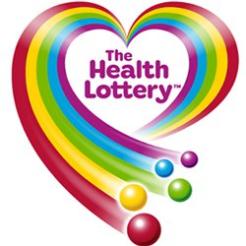The Health Lottery has responded to Sir Stuart Etherington's call for an increase in the proportion of its proceeds going to charity, saying that limitations on society lotteries imposed by the Gambling Act must be removed before this could happen.
Sir Stuart, chief executive of NCVO sent a letter to Secretary of State for Culture, Olympics, Media and Sport, Jeremy Hunt on 31 August requesting a review of the impact of the Health Lottery on the wider lottery sector. In it he also suggested the Health Lottery should increase the proportion of proceeds that go to charity so that it is in line with the National Lottery at 28 per cent. The Health Lottery currently gives around 20.3 per cent to good causes.
But a spokeswoman for the Health Lottery has advised that there is a "stark contrast" between the restrictions placed on the Health Lottery compared to the National Lottery and that without a "level playing field", the issue of the proportion given to charity cannot be addressed.
"The current statutory limits for society lotteries, and the good cause percentage were set as part of the 2005 Gambling Act and have applied to all society lotteries since then.
"The statutory limits set by Parliament place significant restrictions on society lotteries on the proceeds that can be raised by the sale of lottery tickets and prizes that can be paid.
"The restrictions of the Gambling Act mean it is difficult for us to give the amount that we do, because there are restrictions on the amount of tickets we can sell and the amounts of prizes we can give.
"This is in stark contrast to the National Lottery, which reported record sales of £6.5bn last year and which had prizes of over £100m in a single week this summer, making it a highly profitable business for its overseas owners.
"If Sir Stuart wants the good cause donations for society lotteries increased to be in line with that of the National Lottery, then the cap on prize limits and prize payouts must also be lifted," she said.
Under current law, there can be only one 'national lottery', and so restrictions are placed on other lotteries to ensure this is the case. The Health Lottery manages 51 individual society lotteries which are restricted to £4m proceeds for any individual lottery and £10m annual turnover. Prizes are also restricted to 10 per cent of the proceeds of the lottery.
Since the Health Lottery's launch in October last year it has donated £24m to health-related causes, but it has declared losses of £35m during the bedding-in period.









